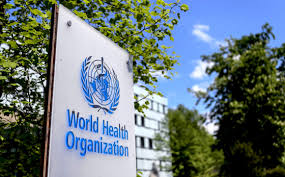The Trump administration has been mulling a plan to overhaul the World Health Organization, which would include placing an American in leadership, to keep the organization as a member.
Before his inauguration on January 20, President Donald Trump’s advisors were given access to the document, which suggested that the US immediately declare its withdrawal from the WHO and take a “radical new approach” to dealing with the organization.
This would include advocating for a U.S. official to take over as director general in 2027 when Tedros Adhanom Ghebreyesus’s term ends.
One of Trump’s first major actions after taking office was his unilateral order to leave the WHO.
By January 2026, it would cause the global health agency to lose its largest donor. The WHO disputes the accusations that the body mishandled the COVID-19 pandemic and was inappropriately influenced by other countries.
Since then, Trump has said that if the WHO was “cleaned up,” the United States could return, but he hasn’t specified what that would entail.
Laptops 1000The reform idea has been discussed since before Trump became president, but it is unclear if his administration will implement any of its other suggestions.
“The Trump administration “will continue to assess current systems and healthcare bodies to pursue required adjustments,” White House spokesperson Kush Desai told reporters. He remained silent on any WHO-related topics.
According to the proposal, which was put up by an outside policy expert at the request of Trump’s transition team, the WHO has turned into “the most chaotic, least effective UN agency.”
The managerial and scientific expertise have declined as a result of WHO’s failure to implement reforms that have been suggested over the past 20 years.
Although it admits that leaving the WHO would harm US interests, it contends that remaining in the organization unless it is transformed will have the same effect.
Søren Brostrøm, WHO’s director of transformation, dismissed the charges, stating that Tedros has led the organization through its most significant reforms to date.
He told reporters, “We have reformed totally, and we know we are still in progress,” referring to actions taken to strengthen its autonomy from donors by changing its funding model, granting country directors greater authority outside of headquarters, and increasing spending transparency.
He noted that the WHO’s broad mandate may make its work more complicated than that of other UN agencies, but emphasized that its reactions to medical emergencies were far from disorganized.
“If member states… have additional requests for reform, we will try to deliver,” he stated.
A UNIQUE ENVOY
According to the draft document, a U.S. special envoy will be appointed in 2025 to supervise talks with the WHO over possible reforms before the departure that is planned for the following year. This ambassador would report to Trump and the White House.
The State Department and the Department of Health and Human Services currently coordinate WHO.
For the first time in the organization’s history, the envoy would advocate for a U.S. official to lead the global health body.
“There is no formal reason why this is the case, and the lack of American leadership at the top of WHO has been a critical factor in the wasting of American funds and the decline of the organization’s efficiency,” according to the proposal.
According to Brostrøm, any member state is free to put forth and support its candidate for director general.
A shortlist of candidates is made by the WHO’s executive board, and the candidate who has the support of at least two-thirds of member nations is appointed to the position.
With an annual contribution of almost 18% of the WHO’s total funding—400 million in voluntary donations and $130 million in assessed payments paid by member states according to the size of their economies—the United States is by far the organization’s largest financial supporter.
Unless other donors fill the gaps in the U.S. budget, the WHO has threatened to decrease funding.
In addition to ceasing communication with the U.S. Centers for Illness Control and Prevention, a longtime collaborator in detecting and containing worldwide illness outbreaks, the U.S. has already ceased working with WHO.
But, according to Brostrøm, it has a delegation attending the agency’s executive board meeting, which is scheduled for February 3–11 in Geneva, to decide on the WHO’s next budget and priorities.
43 U.S. lawmakers encouraged Trump to change his mind last week on the global and American health withdrawal plan.
Along with possible legal action to overturn the ruling, public health activists are also working to stop the move.
Lawrence Gostin, head of the WHO Collaborating Center on National and Global Health Law and professor of global health at Georgetown University in Washington, stated that “it would be in America’s best interests to remain and push for reforms.”

















